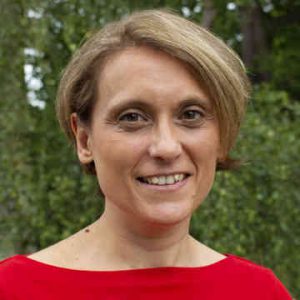Our evidence aims to benefit a wide range of organisations involved in policy debates, design and practice in a range of domains, located in the UK and other countries, to inform key policy choices, such as the balance between intervening late or early in children’s lives, the role of family and wider society in an individual’s development, the choice between universal or targeted support or safety nets for the vulnerable, and the relative roles of values, expectations and preferences versus structure in determining how we act. We have actively contributed to parliamentary evidence to inform government policy, garnered wide spread media coverage and provided key insights for campaigners and third sector organisations.
Our work offers robust and high-quality research evidence and brings it to policymakers, assisting them in the development of policies and programmes which equalise opportunities and create greater fairness in our society.”
— Professor Emilia Del Bono, Director

Find out more about how MiSoC makes a difference to social science
- Building Social Science Expertise Across Disciplines
- Putting Relevant Research in front of Policy Makers
- Informing Decision Making with World-Leading Research Experts
- Growing the Dedicated Research Experts of the Future
- Our Prestigious Heritage: Expert Leadership throughout 30 years of Research Innovation
MiSoC is hosted by the Institute of Social and Economic Research (ISER) at the University of Essex. ISER has been a leading player in multidisciplinary social science for over 30 years – watch this short film made for ISER’s 30th anniversary in 2019 to see our history and achievements over the decades
Previous programmes of MiSoC’s research
2019-2024 programme:
Professor Mike Brewer (Director until 2019), Professor Emilia Del Bono, (Director from 2019)
This programme, which began in 2019 looked at how we are individually impacted by the changing world around us, including policy changes and wider national and global social changes. It included the unexpected pandemic lockdowns and the impact of this formed a significant part of our investigations into what this meant for us – from access to education, to mental health and wellbeing, to working from home.
Our core programme looked at how individuals and families are responding to the challenge of the world’s need for a creative, adaptable labour force – with higher levels of education and a greater reliance on social skills.Our core programme looked at how individuals and families are responding to the challenge of the world’s need for a creative, adaptable labour force – with higher levels of education and a greater reliance on social skills. explored demographic changes: including new family structures, changing gender roles, an ageing population and growing diversity from migration. Working across disciplines, including public health, our research exploited recent developments linking genetics and social science. MiSoC’s programme of methodological work brought new advances from machine learning into the fore and expanded our range of causal inference tools.
2014-2019 programme: “Understanding individual and family behaviours in a new era of uncertainty and change”:
Professor Mike Brewer (Director from 2012)
- How individuals and families are affected by and react to changes in their life circumstances
- How new members of society – children, young people and new migrants – develop and are integrated into it
- How values, attitudes, expectations, tastes or preferences and identity are formed.
2009-2014 programme: “Understanding social change”:
Professor Stephen Pudney (PI and Director until 2012), Professor Mike Brewer (Director from 2012), Professor Richard Berthoud, Professor John Ermisch, Professor Stephen Jenkins, Professor Amanda Sacker and Professor Holly Sutherland
- How families and social ties determine children’s life chances
- How individuals’ attitudes, expectations and preferences shape their employment and careers
- How wages, household income and social disadvantages vary across social and ethnic groups
For more details, please contact the Director, Emilia Del Bono.
